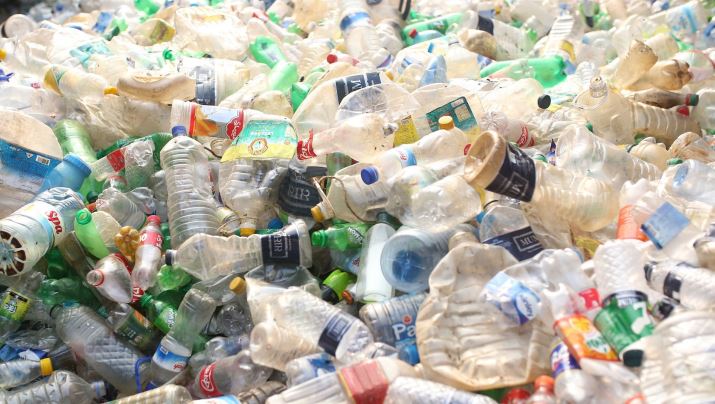The increasing population of small businesses, entrepreneurs, and other firms involved in production are flooding the Nigerian market with good products but using packaging materials that are environmentally harmful.
From the food stores to clothes and drinks, most businesses package products in plastic bags and bottles which are eventually thrown away creating a heap of garbage, causing pollution.
One major factor that leads to poor waste management in Nigeria is the use of single-use plastic products and packaging materials. From plastic in waterways causing flooding to the harmful effect on human health, the environmental impact of unsafe packaging is enormous.
While SMEs and entrepreneurs play an important role in economic growth, awareness regarding environmentally friendly packaging is becoming crucial.
“We need to rethink our business models. As we are encouraging SMEs and entrepreneurs, we need to educate them to understand the effect of their products and businesses on the environment,” said Afolasade Nubi, an Environmental Engineer at the University of Lagos said in a recent BusinessDay DISWASTE 2021 conference.
According to the Nigeria Bureau of Statistics, small and medium scale enterprises (SMEs) in Nigeria have contributed about 48 percent of the national GDP in the last five years. With a total number of about 17.4 million, they account for about 50 percent of industrial jobs and nearly 90 percent of the manufacturing sector, in terms of the number of enterprises.
However, it has also been estimated that Nigeria will be the nation producing the largest amount of mismanaged plastic waste in Africa by 2025 if drastic measures are not taken.
According to the Federal Ministry of the Environment, Nigeria generates some 32 million tonnes of waste per year, of which 2.5 million tonnes is plastic waste most of which (70%) ends up in landfills, sewers, beaches, and water bodies.
The World Bank also estimates that Nigeria discharges around 200,000 tonnes of plastic waste into the ocean per year, while its annual plastics production is projected to grow to 523,000 tonnes by 2022.
While there have been efforts to recycle plastics in recent times, Nigeria must look towards solving the problem from the source.
“It is good to recycle but it is even greater to solve the problem from the source whereby SMEs businesses understand how to come up with better sustainable products through right packaging,” Nubi said.
Although plastic bags are used across many countries of the world its use and circulation have grave consequences on the ecosystem.
The harmful impacts occur because plastic bags could not bio-degrade which means they do not break down completely, it takes 500-1000 years for a single plastic bag to degrade.
According to the Centre for International Environmental Law (CIEL), plastic is a human health crisis hiding in plain sight.
The devastating element of this pollution is that plastics getting into the ocean could take a thousand years to decay. As a result, fish and wildlife consume them and consequently, the toxins from the plastics enter the food chain, threatening human health.
Plastic waste does not only pollute our oceans. Burning plastics in incinerators causes toxic air emissions, leaving people who live close to the incinerators to bear the brunt.
The Nigerian government has made various interventions to reduce plastic waste pollution.
In 2012, the Lagos State Waste Management Authority (LAWMA) introduced a plastic bag buy-back program to encourage the sale of used plastic bags to a state agency for recycling rather than discarding them like trash.
In 2016, the Lagos State Waterways Authority (LASWA) also launched the “Caring for our Waterways” campaign to educate Lagos residents on the dangers posed by plastic bags and other solid wastes to state waterways.
Despite these interventions and plastic bags continue to litter streets and clog drains show how little these initiatives have achieved an indication that the pollution needs to be addressed from the point of production.
Countries around the world are making the move to ban plastic use and others creating laws ensuring limited use.
According to SafariBrookings, the largest online marketplace for African safari tours, Sixteen African countries have taxed or banned disposable plastic bags, including Tanzania, Botswana, Uganda, Mauritania, and Morocco.
Kenya’s ban on plastics was legislated in 2017, and it is the strictest in the world. The penalties allow for up to four years in prison for producing or even using plastic bags.
Nigeria has also made its move to ban single-use plastic bags as the National Assembly and the Federal Ministry of Environment say they are working on a bill meant to prohibit the production of plastics but it is yet to be passed into law.
Harmful product packaging threaten Nigeria’s environmental sustainability
Related posts
Reviews
Follow Our Activities On Facebook
4 hours ago
9 hours ago
12 hours ago
12 hours ago
13 hours ago
SUBSCRIBE
[mc4wp_form id=”2012″]
Top Reads!
#BigBrotherNaija “Level Up” Week 6
Though last Sunday Sunday was meant to be a “no-eviction” day, it came as a shocker when fake housemate, Modella…
Dating in 2022; Situationships Are Not For The Fainthearted
Situationships are defined as that space between a defined relationship and something other than a friendship. It is a romantic…
20 Questions With Dinta Media’s Visual Storyteller, Chimeremogo Nwoke
Dinta Media is not really just a media production brand but we like to see ourselves as a hub for…
How Are Nigeria’s Small Businesses Coping?
The current rising rate of inflation and other burdens against the Nigerian economy speaks to the realities of the times.
Thrifting Is All The Rave Now, Here’s Why
By Amy Adindu The affordable clothing movement has gained global attention and acceptance as we’re all trying to look like…
#BigBrotherNaija “Level Up” Week 2
Week 2 of the highly watched Nigerian TV show kicked off with an early plot twist. On Sunday, Big Brother…
#BlueTunes: Burna Boy, Omah Lay Top Album Picks For July
July was a promising month for music lovers; from Lizzo’s album titled Special and Imagine Dragons’ Mercury, (Acts 1 &…
#BlueTunes Album Picks For June
Gbagada Express – Boj Bolaji Odojukan, popularly known as BOJ, was raised both in England and Nigeria. He shot to…
“A Creative’s Dream” with Jeff Chinonso
On the 26th of June 2022, Jeff Chinonso hosted his first solo art exhibition. The Augmented Reality exhibition themed “A…
Nigerian API-based company Thepeer raises $2.1 million
Tech infrastructure startup Thepeer has raised a $2.1 million seed round according to a report from TechCabal. Thepeer, a Nigerian…
Dika Ofoma, Ugochukwu Onuoha take on grief in Debut Film “The Way Things Happen”
The twenty-minute film focuses on the loss of a loved one, and how grief changes a person.
Nigerian Startups might just be Crippled by a Recently Leaked bill
Over the years there has been talks of amendment on the 2007 Act of the National Information & Technology Agency (NITDA).
Why We Love Kelechi Amadi Obi
The definition of talent is Kelechi Amadi’s iconic story. Imagine a person who studies law in school, gets called to Bar, and leaves it all for something different and unrelated…Painting!

















